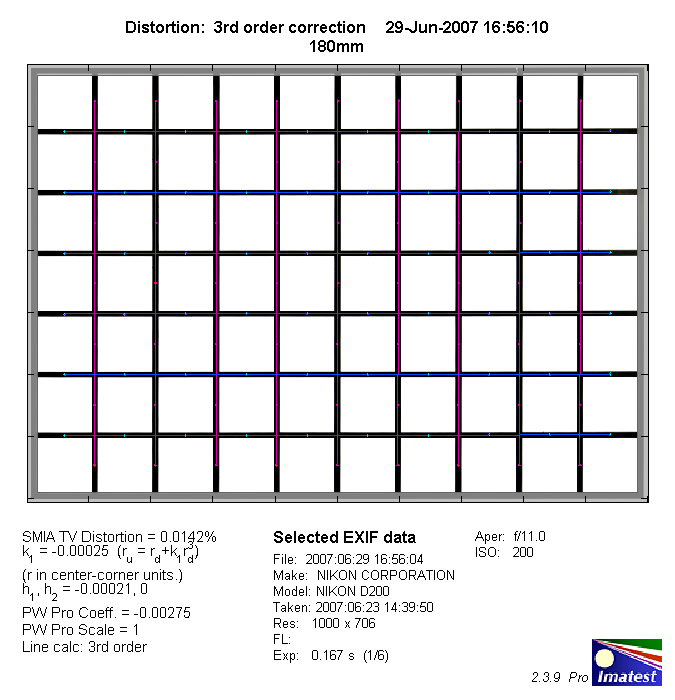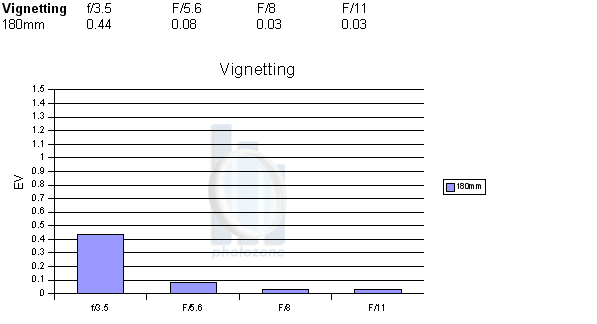|
Tamron AF 180mm f/3.5 SP Di LD [IF] macro (Nikon) - Review / Test Report - Analysis |
|
Lens Reviews -
Nikon / Nikkor (APS-C)
|
|
Page 2 of 3
Distortion
Typical for macro lenses the Tamron shows only an absolutely negligible degree of distortion.

The chart above has a real-world size of about 120x80cm.
Vignetting
The Tamron is a full-format lens so it can take advantage of the usual sweet spot effect
when used on an APS-C DSLR. Generally vignetting is no real problem even at f/3.5 and
at smaller aperture settings it is a non-issue.

MTF (resolution)
Typical for most macro lenses the resolution characteristic is very impressive.
At f/3.5 the quality figures are already on a very good level. Stopping down
results in a further increase in resolution till reaching an excellent maximum
around f/8. At f/16 the quality is a still on a very good level whereas f/22
suffers from a higher decrease due to diffraction effects (a physical
limitation). f/32 (not shown below) should be generally avoided.
Please note that the MTFs charts below represent the performance near infinity
focus. For the time being dedicated macro performance tests are not possible.
Please note that the MTF results are not directly comparable across the different systems!
Below is a simplified summary of the formal findings. The chart shows line widths per picture height (LW/PH) which can be taken as a measure for sharpness.
If you want to know more about the MTF50 figures you may check out the corresponding Imatest Explanations
Chromatic Aberrations (CAs)
Chromatic aberrations (color shadows at harsh contrast transitions) are extremely well
controlled throughout the tested aperture range. It is a little more pronounced
at f/3.5 but even here CAs are not really field relevant.

|